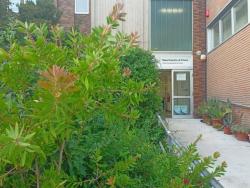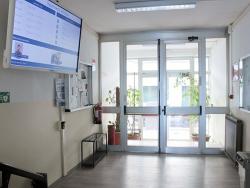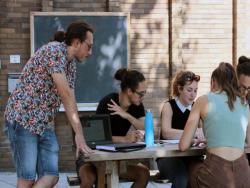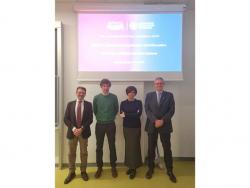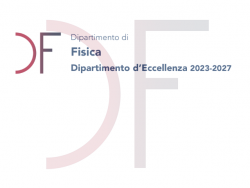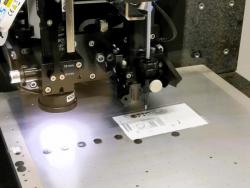Department of Excellence
Visiting Scientists
The actions to pursue the objectives of the DdE are also supported by a program of invitations of visiting scientists from foreign research institutions. The visiting scientists contribute to highly qualified teaching with cycles of seminars and lessons for PhD students and Master's students.
Below we report a list of visiting scientists whose visit has been scheduled, and of those who have already visited the Department, with information relative to the activity carried out.
Peter Skands
(Monash Univ., Melbourne)
Research Line: LEA
Prof. Luciano Rezzolla
Institute for Theoretical Physics, Frankfurt (Germany)
September, 15 2025 - Semptember, 19 2025
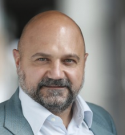 Research Line: HPC-BD-ML
Research Line: HPC-BD-ML
Colloquium:
”Imaging supermassive black holes: observations and theory"
In the first lecture I will discuss how the first images of the supermassive black holes M87* and Sgr A* were obtained by the EHT collaboration exploiting the VLBI technique. I will also describe the theoretical aspects that have allowed us to model the dynamics of the plasma accreting onto the black hole and how the comparison between the theoretical images and the observations on a broad range of frequencies has allowed us to deduce the presence of supermassive black holes and to extract information about the accretion process. In the second lecture, I will discuss the differences in the analysis of the data from M87* and Sgr A*, and illustrate the lessons we have learned from these imaging process about strong-field gravity and alternatives to black holes and some recent ideas about light rings and ultra-compact objects.
Prof. Yehia Abdel-Aziz
National Research Institute of Astronomy and Geophysics, Cairo (Egypt)
June, 24 2025 - July, 7 2025
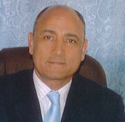 Research Line:
Research Line:
Colloquium:
”Improving space situational awareness by closing the gap in Africa and the Middle East"
Space Situational Awareness (SSA) is the capability to detect, track, catalog, and predict the trajectories and statuses of space objects. It is critical for avoiding collisions, managing space traffic, and ensuring long‑term orbital safety. The growth of the SSA market is driven by increasing orbital congestion and a rising focus from both government agencies and private entities on maintaining the safety and sustainability of space operations. Establishing SSA is fundamental to any space activity. Understanding the location, trajectory, and status of space objects enables operators to conduct missions safely, avoid collisions, and prevent interference with the operations of other entities or nations. SSA capabilities can be achieved through a combination of technologies and services, including ground-based tracking stations, access to space-object tracking databases, and deployment of space-based SSA systems. These tools allow operators to achieve varying levels of awareness tailored to their specific mission requirements and objectives. The advantages and disadvantages of different technology Radar, Optical ground based and space-based are presented. In this seminar, we offer our insights to close the critical SSA coverage gap across longitudes in Africa and the Middle East—leveraging exceptional clear-sky conditions for enhanced regional space safety and sustainability. We highlight the importance of using AI for automated collision-avoidance maneuver planning, which ensures real-time satellite safety by autonomously calculating optimal evasive actions, safeguarding valuable assets, and maintaining orbital integrity. We also explore using machine learning combined with hyperspectral technology to classify and characterize space objects. By analyzing observations from both ground-based and space-based sensors, this approach enables accurate identification of object type, material composition, and operational status.
Colloquium:
”Tether satellite system for active debris removal: dynamics, control and chaotic motion"
Active Debris Removal (ADR) is a critical component of space sustainability efforts, especially as orbital congestion increases with the rise of mega-constellation satellites. ADR aims to reduce the risk of collisions with operational satellites or spacecraft. There are many different conceptual methods for ADR, including robotic arms or nets to capture debris, harpoons or tether satellite systems, and techniques like ion beam shepherding or laser nudging. In this seminar, we are focusing on the Tethered Satellite System (TSS), which is a space system that uses a long, strong tether (or cable) to connect two objects in orbit - typically a satellite and a spacecraft or another satellite. TSS was developed to study tether dynamics and to explore alternative methods of propulsion and power generation in space. TSS serves multiple purposes, such as: (i) electrodynamic tethers for generating electricity by interacting with Earth’s magnetic field, (ii) propulsion and orbital maneuvering without fuel, (iii) stabilization and attitude control of spacecraft, and (iv) Debris removal, where defunct satellites can be deorbited by lowering their altitude until they burn up in the atmosphere. The dynamics and stability of TSS are studied through simulations of different satellite configurations. These studies help to determine the electric current that can pass through the tether and ensure the presence of equilibrium points in the system. Such analyses directly support the practical design of tethered satellites, improving their performance across various applications. Finally, numerical simulations are presented to confirm the controllability of electrodynamic TSS systems and to explore the potential for chaotic motion within these systems.
Dr. Francisco Villaescusa-Navarro
Flatiron Institute, New York (U.S.)
June 16, 2025 - July 11, 2025
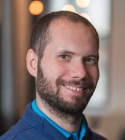 Research Line: HPC-BD-ML
Research Line: HPC-BD-ML
Colloquium:"
AI Agents: a new paradigm for science?"
In this lecture, I will introduce AI agents. I will show what they are, their capabilities, and their role in science. I will illustrate how to build a simple AI agent in python and then explain how complex multi-agent systems are built and deployed. I will illustrate the capabilities of these systems by showing how to write a scientific paper live.
Colloquium:
”Tackling complex problems in cosmology with machine learning"
In this lecture, I will describe a set of complex problems in cosmology that have impeded the community from making progress. I will then describe how machine learning methods have been developed to tackle these problems.
Dr. Michele Del Zotto
Uppsala University (Sweden)
February, 17 - February, 23 2025
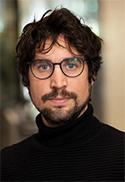 Research Line: STQ
Research Line: STQ
Colloquium:
"Symmetries of quantum fields: a modern take"
Dr. Gianluca Teza
Max Planck Institute for the Physics of Complex Systems, Dresden (Germany)
February, 4 - February, 6 2025
Research Line: FSC
Colloquium:
"Exploring Complex Systems: Dynamics, Growth and Fluctuations Out of Equilibrium"
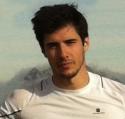 Our understanding of physical systems is largely shaped by observations made at or near equilibrium. Yet, most of the systems around us – ranging from a cup of coffee cooling on our table to life as we know it – are intrinsically out of equilibrium. Despite significant breakthroughs in the last decades, we still lack a comprehensive theory to describe nonequilibrium macroscopic phenomena. In this seminar, I will provide an overview on recent advances characterizing counterintuitive out-of-equilibrium phenomenologies (such as the Mpemba effect), both in simple and many-body interacting systems [1-4], showcasing applications in quantum simulators [5]. I will then present results that establish novel unifying principles for out of equilibrium systems, drawing parallels to foundational concepts in equilibrium statistical mechanics [6-9]. Finally, I will show some interdisciplinary applications to underline how the techniques and methodologies we developed can allow us to tackle issues and model a variety of complex systems, ranging from biology [10] to macroeconomics and finance [11-13]. I will also discuss a recent project – within a collaboration involving different institutional actors – which focuses on developing innovative data-driven econometric models based on the methodologies introduced in [11-13].
Our understanding of physical systems is largely shaped by observations made at or near equilibrium. Yet, most of the systems around us – ranging from a cup of coffee cooling on our table to life as we know it – are intrinsically out of equilibrium. Despite significant breakthroughs in the last decades, we still lack a comprehensive theory to describe nonequilibrium macroscopic phenomena. In this seminar, I will provide an overview on recent advances characterizing counterintuitive out-of-equilibrium phenomenologies (such as the Mpemba effect), both in simple and many-body interacting systems [1-4], showcasing applications in quantum simulators [5]. I will then present results that establish novel unifying principles for out of equilibrium systems, drawing parallels to foundational concepts in equilibrium statistical mechanics [6-9]. Finally, I will show some interdisciplinary applications to underline how the techniques and methodologies we developed can allow us to tackle issues and model a variety of complex systems, ranging from biology [10] to macroeconomics and finance [11-13]. I will also discuss a recent project – within a collaboration involving different institutional actors – which focuses on developing innovative data-driven econometric models based on the methodologies introduced in [11-13].
[1] GT, R. Yaacoby, and O. Raz, Phys. Rev. Lett. 131, 017101 (2023).
[2] GT, R. Yaacoby, and O. Raz, Phys. Rev. Lett. 130, 207103 (2023).
[3] R. Yaacoby, O. Raz, and GT, arXiv:2203.11644, (2024). [4] GT, J. Bechhoefer, A. Lasanta, O. Raz, and M. Vucelja, Physics Reports, (to appear, 2025).
[5] S. Aharony Shapira, Y. Shapira, J. Markov, GT, N. Akerman, O. Raz, and R. Ozeri, Phys. Rev . Lett. 133, 010403 (2024).
[6] GT and A. L. Stella, Phys. Rev. Lett. 125, 110601 (2020).
[7] A. L. Stella, A. Chechkin, and GT, Phys. Rev. Lett. 130, 207104 (2023).
[8] GT and A. L. Stella, arXiv:2407.07782 (2024).
[9] T. GrandPre, GT, and W. Bialek, arXiv:2412.19772 (2024).
[10] R. Arbel-Goren, S. A. McKeithen-Mead, D. Voglmaier, I. Afremov, GT, A. D. Grossman, and J . Stavans, Nucleic acids research, gkad068 (2023).
[11] GT, M. Caraglio, and A. L. Stella, Entropy 20 (2018).
[12] GT, M. Caraglio, and A. L. Stella, Scientific reports 8, 15230 (2018).
[13] GT, M. Caraglio, and A. L. Stella, Scientific reports 11, 10189 (2021).
Prof. Anna Bergamaschi
PSI Center for Photon Science, Zurich (Switzerland)
January, 27 2025 - February, 7 2025
Research Line: LEA
Colloquium:
"Boosting Photon Science through Detector Development"
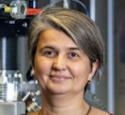 Photon science drives discoveries across diverse fields, from material science to biology. Over the past two decades, advancements in detector technologies have revolutionized imaging applications, significantly enhancing their speed, reliability, and performance. As photon sources grow more powerful, the demand for detectors with improved dynamic range, speed, resolution, and efficiency continues to increase. These challenges necessitate ongoing innovation in all detector components, including sensors, readout electronics, and systems capable of managing huge data throughput. This presentation highlights how cutting-edge detector technologies are transforming applications at synchrotrons and X-ray Free Electron Lasers (XFELs), driving advancements in techniques such as diffraction, microscopy, and spectroscopy. Detector innovations originally developed for high-energy physics are now being tailored to meet the specific requirements of photon science, demonstrating the power of interdisciplinary collaboration. A recent breakthrough is the adaptation of Low Gain Avalanche Diodes (LGADs) for soft X-ray detection, leading to the deployment of the first single photon counting detector capable of measuring energies as low as 500 eV. This advancement has enabled the acquisition of nanometer-resolution magnetic contrast ptychographic images of FeBiO3 samples at the iron and oxygen K-edges, showcasing the detector's remarkable capabilities. In addition, progress is being made in developing a Resonant Inelastic X-ray Scattering (RIXS) detector. This innovative system features a kHz frame rate and micron-level spatial resolution, achieved through interpolation techniques, and promises to open new possibilities for high-precision spectroscopy. These advancements exemplify how interdisciplinary approaches can drive technological innovation and address broader societal challenges in fields like medicine, microelectronics, and energy research.
Photon science drives discoveries across diverse fields, from material science to biology. Over the past two decades, advancements in detector technologies have revolutionized imaging applications, significantly enhancing their speed, reliability, and performance. As photon sources grow more powerful, the demand for detectors with improved dynamic range, speed, resolution, and efficiency continues to increase. These challenges necessitate ongoing innovation in all detector components, including sensors, readout electronics, and systems capable of managing huge data throughput. This presentation highlights how cutting-edge detector technologies are transforming applications at synchrotrons and X-ray Free Electron Lasers (XFELs), driving advancements in techniques such as diffraction, microscopy, and spectroscopy. Detector innovations originally developed for high-energy physics are now being tailored to meet the specific requirements of photon science, demonstrating the power of interdisciplinary collaboration. A recent breakthrough is the adaptation of Low Gain Avalanche Diodes (LGADs) for soft X-ray detection, leading to the deployment of the first single photon counting detector capable of measuring energies as low as 500 eV. This advancement has enabled the acquisition of nanometer-resolution magnetic contrast ptychographic images of FeBiO3 samples at the iron and oxygen K-edges, showcasing the detector's remarkable capabilities. In addition, progress is being made in developing a Resonant Inelastic X-ray Scattering (RIXS) detector. This innovative system features a kHz frame rate and micron-level spatial resolution, achieved through interpolation techniques, and promises to open new possibilities for high-precision spectroscopy. These advancements exemplify how interdisciplinary approaches can drive technological innovation and address broader societal challenges in fields like medicine, microelectronics, and energy research.
Prof. Elena Pierpaoli
University of Southern California, Pasadena (USA)
June, 23 2024 - July,13 2024
Research Line: HPC-BD-ML
Colloquium:
"Cosmology in the era of large overlapping surveys: new horizons and challenges"
 Lessons learned from the CMB, and a glimpse towards the future: The study of the Cosmic Microwave Background (CMB) during the past twenty years has allowed tremendous progress in our understanding of the Universe. It established the nature of the early Universe process that set up the anisotropies, it consolidated the evidence for Dark Matter (DM), it allowed us to determine the time when luminous structures formed, it determined the global geometry of the Universe, etc. I will briefly review those advances, discuss why they were worth a Nobel prize, and then introduce the current big questions. I will describe what currently-planned CMB experiments will achieve, beyond what is known, and discuss synergies with other probes based on the study of large scale structure in the Universe.
Lessons learned from the CMB, and a glimpse towards the future: The study of the Cosmic Microwave Background (CMB) during the past twenty years has allowed tremendous progress in our understanding of the Universe. It established the nature of the early Universe process that set up the anisotropies, it consolidated the evidence for Dark Matter (DM), it allowed us to determine the time when luminous structures formed, it determined the global geometry of the Universe, etc. I will briefly review those advances, discuss why they were worth a Nobel prize, and then introduce the current big questions. I will describe what currently-planned CMB experiments will achieve, beyond what is known, and discuss synergies with other probes based on the study of large scale structure in the Universe.
Adventuring into secondary anisotropies: I will dive more deeply in what we expect to gain from the study of CMB secondary anisotropies and cross correlations with large-scale structure. I will first present the physics behind these anisotropies, which are typically due to either gravitational effects or scattering between CMB photons and free electrons at low redshift. I will then discuss which "big questions" they are expected to answer, and what are the practical challenges to achieve these goals.
Prof. Robert Alicki
International Center for Theory of Quantum Technologies (ICTQT), University of Gdansk (Poland)
March 4, 2024 - March 8, 2024
Research Line: STQ
Colloquium:
"Cosmology without epicycles"
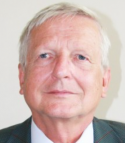 The four puzzles of cosmology, namely the origin of inflation and its termination, baryogenesis, acceleration of expansion and dark matter composition, are addressed within a new model which does not involve "epicycles" like inflaton fields with fine-tuned potentials or dark energy concept. The main assumption, motivated by the analysis of the reduced dynamics of open quantum systems embedded in the de Sitter space, is that the corresponding vacuum can be treated as a real, physical heat bath at the Gibbons-Hawking temperature proportional to the Hubble constant. This leads to the modified Friedmann equations for the Friedmann-Lemaitre-Robertson-Walker universe which predict the new mechanism of inflation and its graceful exit, mathematically similar to the model of superfluorescence in quantum optics, and additionally, a viable baryogenesis mechanism via gravitational anomaly. The same equations applied to the late Universe show inevitability of acceleration of expansion which in turn puts very specific limits on the particle spectrum beyond the Standard Model relevant for dark matter particles.
The four puzzles of cosmology, namely the origin of inflation and its termination, baryogenesis, acceleration of expansion and dark matter composition, are addressed within a new model which does not involve "epicycles" like inflaton fields with fine-tuned potentials or dark energy concept. The main assumption, motivated by the analysis of the reduced dynamics of open quantum systems embedded in the de Sitter space, is that the corresponding vacuum can be treated as a real, physical heat bath at the Gibbons-Hawking temperature proportional to the Hubble constant. This leads to the modified Friedmann equations for the Friedmann-Lemaitre-Robertson-Walker universe which predict the new mechanism of inflation and its graceful exit, mathematically similar to the model of superfluorescence in quantum optics, and additionally, a viable baryogenesis mechanism via gravitational anomaly. The same equations applied to the late Universe show inevitability of acceleration of expansion which in turn puts very specific limits on the particle spectrum beyond the Standard Model relevant for dark matter particles.
Prof. Dariusz Chruscinski
Institute of Physics, Nicolaus Copernicus University, Torun (Poland)
February, 19 2024 - February, 23 2024
Research Line: STQ
Colloquium:
"Universal properties of relaxation rates for the irreversible dynamics of open quantum systems"
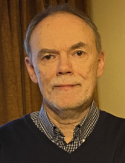 Open quantum systems, namely quantum systems in weak interaction with their environment, evolve irreversibly as manifested by typical relaxation rates, a general property of which is reviewed. It turns out that for a fairly large class of irreversible quantum dynamics, relaxation rates satisfy an intricate constraint which provides a generalization of the well known relation between transversal and longitudinal rates for 2-level systems. It is conjectured that this constraint is universal, i.e., it is valid for all quantum dynamical semigroups. The conjecture is strongly supported by numerical analysis. Moreover, it is shown that the conjectured constraint is tight. Since relaxation rates (or equivalently relaxation times) are often measured in the laboratory, this universality may be considered as a physical manifestation of complete positivity, a structural request necessary for physical consistency. The conjecture has also interesting implications: it provides a universal constraint for the spectra of quantum channels and gives rise to necessary conditions for Markovian channels.
Open quantum systems, namely quantum systems in weak interaction with their environment, evolve irreversibly as manifested by typical relaxation rates, a general property of which is reviewed. It turns out that for a fairly large class of irreversible quantum dynamics, relaxation rates satisfy an intricate constraint which provides a generalization of the well known relation between transversal and longitudinal rates for 2-level systems. It is conjectured that this constraint is universal, i.e., it is valid for all quantum dynamical semigroups. The conjecture is strongly supported by numerical analysis. Moreover, it is shown that the conjectured constraint is tight. Since relaxation rates (or equivalently relaxation times) are often measured in the laboratory, this universality may be considered as a physical manifestation of complete positivity, a structural request necessary for physical consistency. The conjecture has also interesting implications: it provides a universal constraint for the spectra of quantum channels and gives rise to necessary conditions for Markovian channels.
Prof. Lajos Diósi
Wigner Research Center for Physics & Eötvös Loránd University (Hungary)
October 16, 2023 - October 21, 2023
Research Line: STQ
Seminar: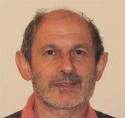 "Will quantum theory be different in the macro-world?"
"Will quantum theory be different in the macro-world?"
Quantum theory was invented for the microscopic world, and proved accurate there. Is it valid in the macroscopic world as well? Is quantum theory universal from particle physics to cosmology? We might like to think so. Except that the experimental evidences are lacking, the relevant theories limp along, and there are crippling conceptual problems. It is therefore not impossible that quantum theory will be different when it reaches the macro-world. But how different will it be? In quantum theory, the micro-world only affects the macro-world when a measurement is made on the micro-world. Wouldn't there exist certain spontaneous measurements, acting universally everywhere and everytime, negligibly weak in the micro-world and amplified in the macro-world? What does such a theory of spontaneous measurement (i.e., spontaneous wavefunction collapse) look like and what is it good for?
Prof. Alberto Imparato
Department of Physics and Astronomy, Aarhus University (Denmark)
August 27, 2023 - September 02, 2023
Research Line: FSC
Seminar:
"Modelli di motori termici autonomi in prossimità di un punto critico: dinamica e termodinamica stocastica"
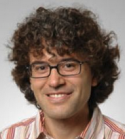 In a system at equilibrium near a critical point, the response to a change in an external field is significantly high. Starting from this consideration, I will discuss the properties of systems of microscopic motors in the vicinity of a second-order phase transition. In particular I will consider a 2D lattice rotor model in contact with baths at different temperatures and an out-of-equilibrium Frenkel--Kontorowa model. Both models behave like heat engines, converting the heat currents between the baths into rotational or linear motion. In my seminar I will show that the optimal operating regime is found when the temperature gradient is applied on a system near a phase transition.
In a system at equilibrium near a critical point, the response to a change in an external field is significantly high. Starting from this consideration, I will discuss the properties of systems of microscopic motors in the vicinity of a second-order phase transition. In particular I will consider a 2D lattice rotor model in contact with baths at different temperatures and an out-of-equilibrium Frenkel--Kontorowa model. Both models behave like heat engines, converting the heat currents between the baths into rotational or linear motion. In my seminar I will show that the optimal operating regime is found when the temperature gradient is applied on a system near a phase transition.


